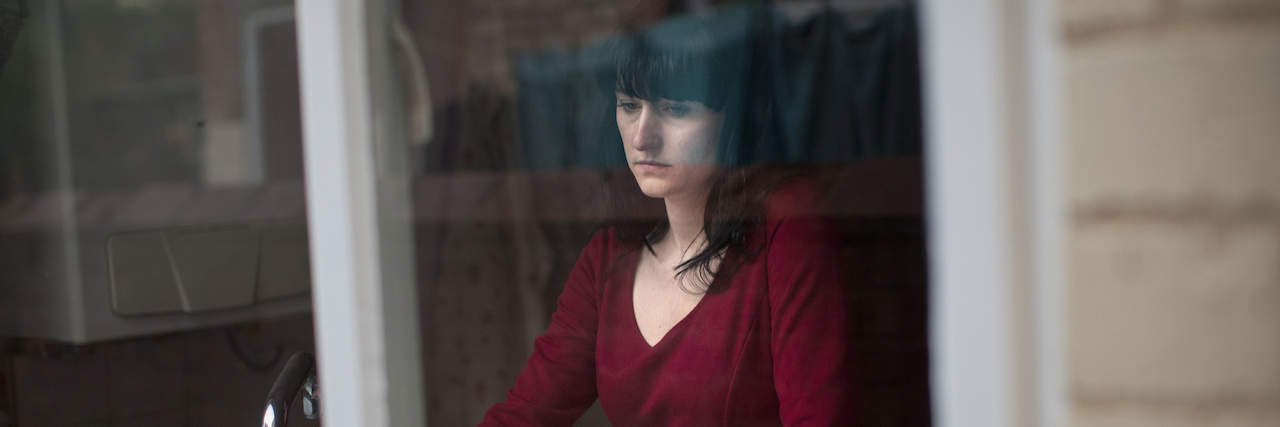When Suicide Hits Close to Home
Editor's Note
If you experience suicidal thoughts, the following post could be potentially triggering. You can contact the Crisis Text Line by texting “START” to 741741.
The other day, my husband and I planned to walk to the store to pick up a few things for dinner. It seemed like an average, ordinary, uneventful day by all accounts. However, as we left our house, we were greeted by two of our neighbors standing in the street. One was recounting to the other about the hazmat team that was at another one of our neighbors’ houses earlier that day.
Surprised that something like this could have occurred in our otherwise quiet and boring neighborhood, I inquired in passing whether there was anything we should be worried about.
My neighbor responded that — from what he had heard — our other neighbor across the street had killed himself.
I immediately felt horrible for even asking.
I felt even more horrible because on more than one occasion, my husband and I had noticed this neighbor’s property and wondered if there was something we could do, should do.
His lawn and bushes always seemed unruly and overgrown. In the three years we’ve lived here, we’ve only actually seen him once. His house often seemed quiet, if not outright abandoned or devoid of life. My husband and I had talked amongst ourselves about whether we should pop by and see if he needed help with anything, but the truth of the matter is that we had never even met the man. We didn’t want to intrude. We didn’t feel it was our place.
But at the same time, we admittedly recognized the signs of a person struggling with their mental and/or physical health because we have both been there ourselves. We both have had our mental health decline to the point where even the simplest of tasks felt like too large a hurdle to overcome. We’ve both been at the point where things have felt so bad that we retreat from the world.
And sadly, this isn’t the first time suicide has hit close to home.
When we were kids, a teenager in our town only a year or two older than both my brother and my husband took his own life. My older brother played football with him. Our fathers were friends. Though everyone knew of him and knew what had happened, nobody ever really talked about it.
In his 20s, my husband lost a close friend to suicide. In my 30s, a childhood friend of mine took his own life. Again and again over the years, suicide has hit close to home, sometimes landing on our own doorsteps.
My mother made multiple attempts on her own life when I was a child. Her cause of death many years later is still under question for me, because it seems unlikely the way she died was an accident. Not that it was really talked about after the fact.
My husband and I have also both been suicidal in the past. We’ve both struggled with our mental health throughout our lives and both have made multiple attempts. My husband is only here today because his brother happened to find him.
I was 16 the first time I tried. As I was fading out of consciousness, I vaguely remember hearing my brother’s voice cussing me out, but to this day I’m not sure whether it was a memory or a dream. I just know my memories stop that day and begin again two days later. It’s something we’ve never talked about afterwards.
That’s often the case when it comes to suicide. We don’t talk about it, even when it hits close to home.
While none of us is ultimately responsible for anyone else’s actions, that doesn’t mean we cannot still be kind. Reach out. If we notice a decline in someone’s mental health, why shouldn’t we check in with each other? We could ultimately be the lifeline that pulls someone else back off the edge.
Speaking from personal experience, I probably would not have tried if I had not felt so lost and all alone in this world. That’s what depression does. It isolates and cuts its victims off from the world.
A 2018 National Survey of Drug Use and Mental Health estimated that 0.6 percent of adults aged 18 or older, roughly 1.4 million people, have made at least one suicide attempt. According to the National Institute of Mental Health, as recently as 2019, suicide was the tenth leading cause of death in the United States, with almost twice as many people dying from suicide as homicide each year. The World Health Organization states roughly 703,000 people die by suicide worldwide each year, and many, many more attempt to take their own lives. With staggering numbers like that, I have no doubt that suicide is hitting close to home for many of us.
So why aren’t we reaching out, knocking on doors, making phone calls and checking in? Why are we so uncomfortable having these conversations?
I really don’t have an answer to those questions. I know everyone is quick to blame the stigma surrounding mental illness — it has, after all, become the catch-all scapegoat that we all point to whenever the hard questions arise. But pointing fingers doesn’t do any more to resolve a problem than thoughts and prayers do. If we want things to change, we have to take action.
We need to all do better, myself included. We need to speak up and speak out. We need to put aside our reservations and our discomfort, so that we can reach out and check in. We need to talk to each other and we need to care. Whether we realize it or not, suicide is already hitting close to home for us all.
Getty image by Leon Harris

